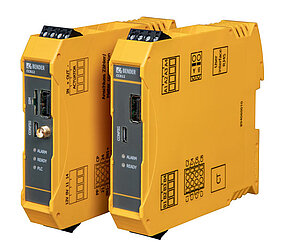Faster and safer charging of electric vehicles with Smart Grid Charge Controller
As a manufacturer of insulation monitoring devices for unearthed DC drive systems in electric vehicles, Bender is now expanding its e-mobility business to include compact, intelligent and cost- effective charge Controllers.
As the number of electric vehicles on the roads continues to grow, so too does the infrastructure needed to ensure that finding a charging station or charging point is not a problem.
The costs of installing a charging point are also falling thanks in part to technological developments, but challenges still remain. With little available space and a vehicle electrical system that must fulfil the demanding industrial requirements specified by IEC61851, IEC60364, iso15118, iso17409 and the Open Charge Point Protocol (OCPP), mode 3 AC charging points are under particular pressure because the installation and charge point costs are simply too high to be economically viable for a provider [1]. Today’s AC charging points are mainly systems with expensive and sensitive RCD protection devices (type B FI circuit breaker). This allows today’s cars to charge at many different charging stations. However, the back-end communication may be different, allowing some cars to charge only at specific charging stations where the E-Mobility Provider (EMP) and the Charge Point Operator (CPO) are the same. With its scalable highly integrated CC611 and CC612 charge controllers, Bender is addressing these issues.
A Bender charge controller is the main component of a charge point and is designed for use in electric vehicle (EV) charging stations, wall boxes and street light charging points. A charge controller controls type 1 plugs and type 2 sockets. It enables a setup that is in accordance with current standards, such as IEC 62196, IEC 61851-1 and IEC 61851-22.
The charge controller is characterized by its compact design and size (114.5 mm x 22.5 mm x 99 mm) that in turn enables intelligent, small and cost effective charging points. To enable the charge controller to communicate, a backend system together with a well-known and trusted communication protocol is required. Given that most backend providers strictly adhere to the OCPP communication protocol, the charge controller is OCPP 1.5 complaint and compatible with all electric vehicles currently on the market.
Download:
